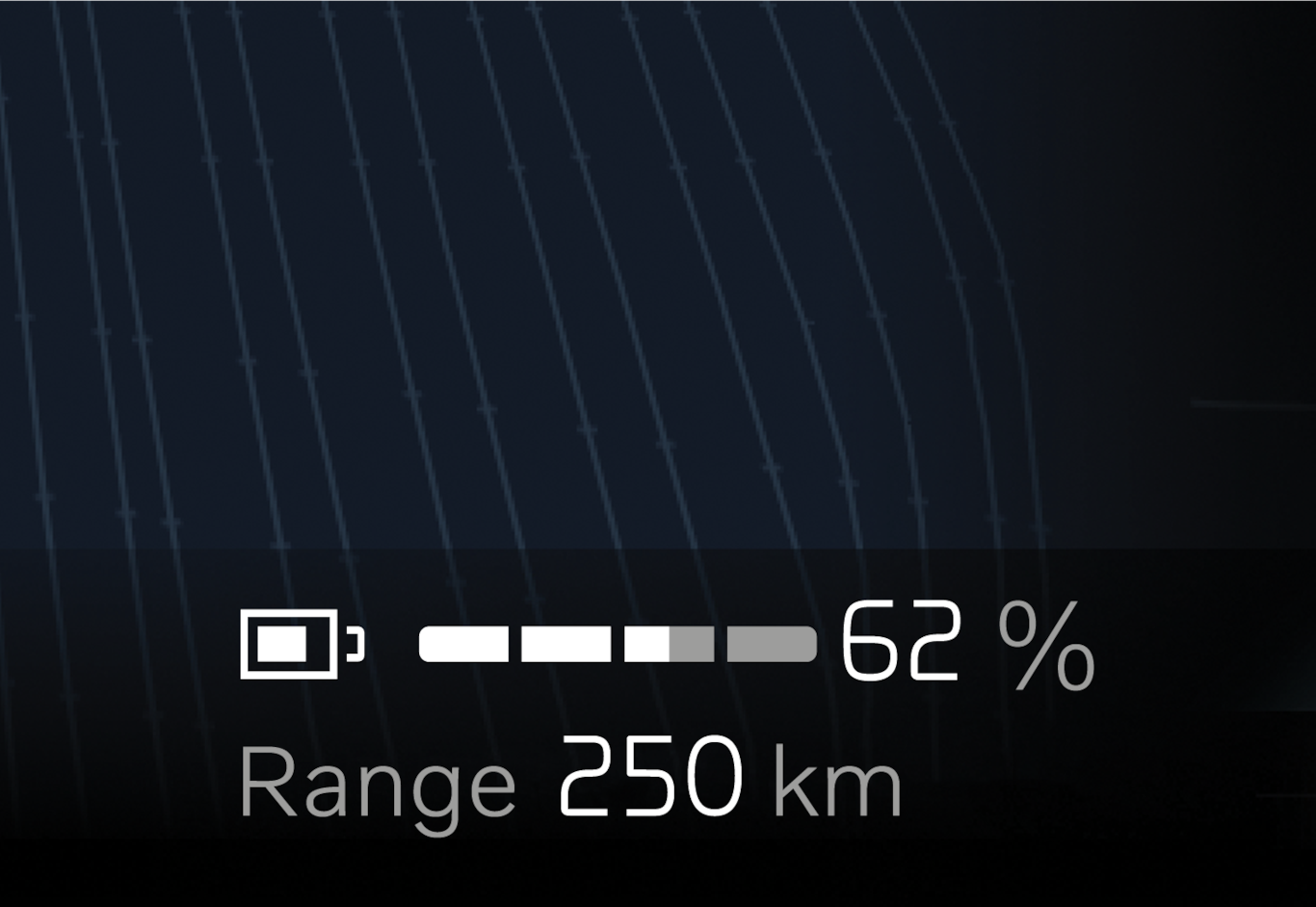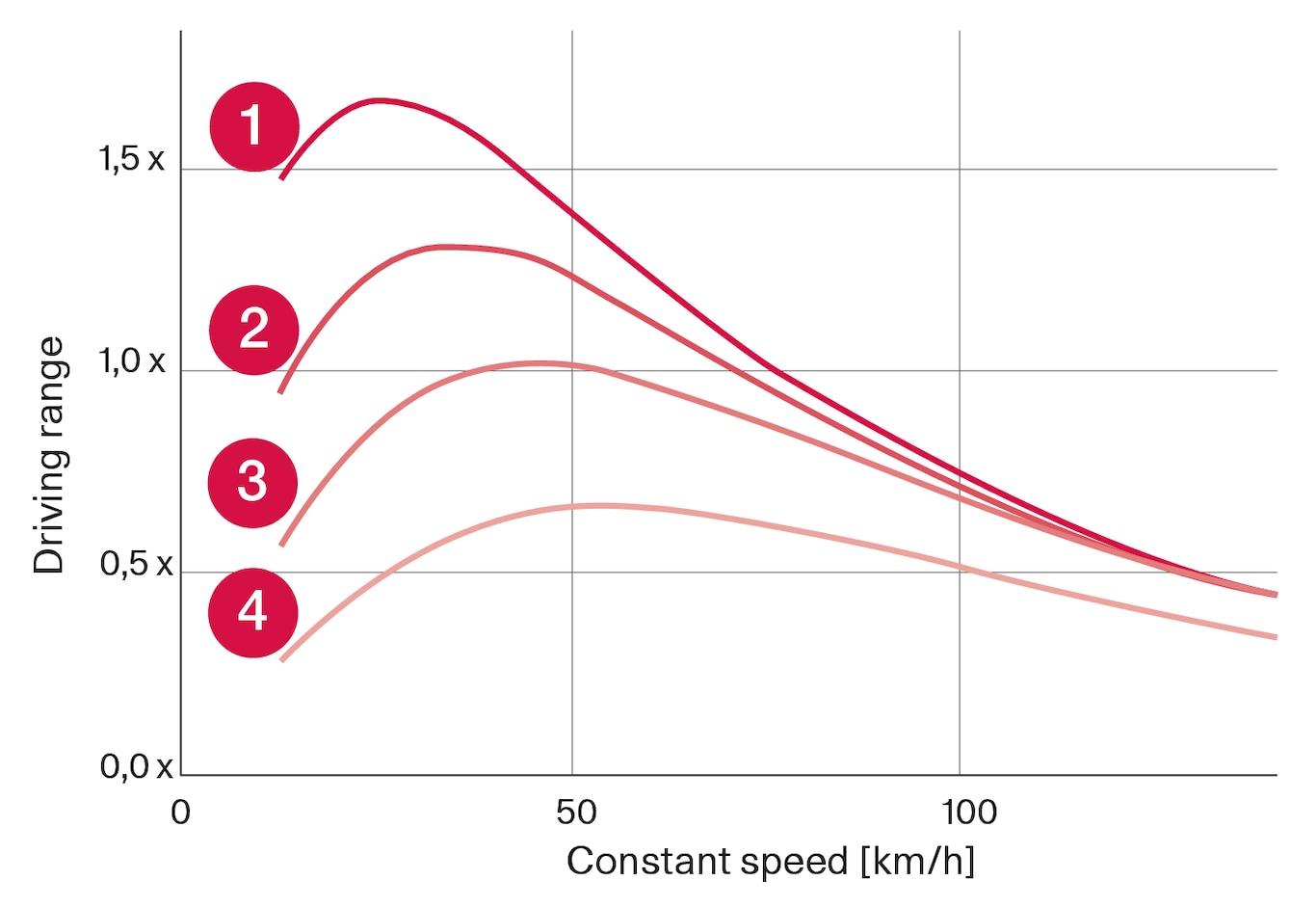The certified value for the vehicle's range should not be considered an expected driving range. The certified value is obtained during special test cycles and is primarily intended to be used for comparisons between different vehicles.
Note
Range in the instrument panel

When the vehicle is delivered from the factory, the range is based on the certified value. Once the vehicle has been driven for a while, range is instead based on historical driving patterns.
The amount of history used depends on the battery's charge level. The lower the charge level of the battery, the more quickly the range adapts to changed driving patterns.
Short range
When the battery's charge level drops, the vehicle's estimated range will also be shorter. As the range becomes shorter, a number of messages and symbols will be shown in the instrument panel.
| Symbol | Message/meaning |
|---|---|
 | When the vehicle's range drops to 50 km (31 miles), the color of the battery symbol next to the battery gauge will change to orange and the message Low rangeDo you want to find a charging station? will be shown in the instrument panel. If a destination has been set in the navigation system, the message will not be shown. |
 | When the vehicle's range drops to 20 km (12 miles), the color of the battery symbol next to the battery gauge will change to red and the message Low rangeDo you want to find a charging station? will be shown in the instrument panel. |
 | When the battery level is low, an orange turtle will be shown in the upper section of the instrument panel. |
 | The message Reduced power due to low battery charge will be displayed along with an orange battery symbol. If the turtle was not shown earlier, it will be visible in the instrument panel when this message is displayed. |
 | The message Empty battery. Charge battery. will be displayed along with an empty battery symbol. |
Factors affecting driving range
There are a number of other factors in addition to historical trip data that affect range. The longest range is achieved under very favorable conditions when all factors positively influence range.
Factors affecting range include:
- speed
- climate control settings
- topography
- preconditioning
- tires and tire pressure
- the current traffic situation
- temperature and weather
- road conditions.
Range in cold temperatures

In cold ambient temperatures, the battery may become cold, which will adversely affect range. If the battery drops to a critically low temperature, this symbol is shown in the instrument panel. If the vehicle is parked in cold ambient temperatures, the range could be drastically reduced. To avoid extremely reduced range after parking in cold ambient temperatures, the vehicle should be charged while it is parked.
Range based on speed and ambient temperature

 20 °C (68 °F) ambient temperature and passenger compartment climate control off.
20 °C (68 °F) ambient temperature and passenger compartment climate control off. 20 °C (68 °F) ambient temperature and passenger compartment climate control on.
20 °C (68 °F) ambient temperature and passenger compartment climate control on. 35 °C (95 °F) ambient temperature and passenger compartment climate control on.
35 °C (95 °F) ambient temperature and passenger compartment climate control on. -10 °C (14 °F) ambient temperature and passenger compartment climate control on.
-10 °C (14 °F) ambient temperature and passenger compartment climate control on.
The graph shows the approximate ratio between constant speed and range.
The graph shows that a lower speed gives a longer range. The ambient temperature also affects the range, so that very cold or very warm ambient temperatures give a shorter range.
Lines 1 and 2 show the approximate difference in range that is affected by the climate functions. Turning off the climate system is more favorable for the range.